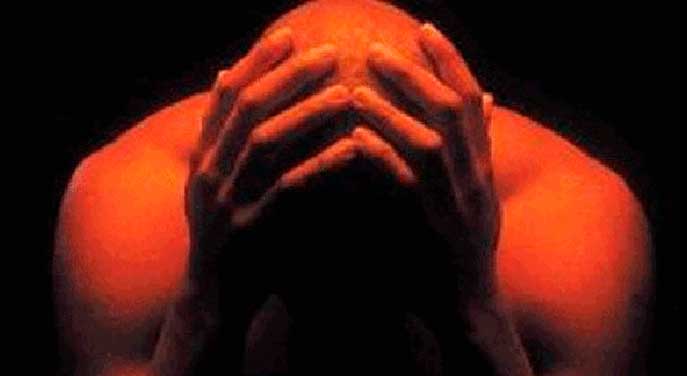 Anxiety and depression are common mental health issues among college students.
Anxiety and depression are common mental health issues among college students.
According to Daniel Eisenberg, an associate professor at the University of Michigan School of Public Health, one in three American college students experience significant symptoms of depression, anxiety or other mental health conditions.
College athletes certainly aren’t immune to these mental health challenges. In addition to the academic and social pressures all college students face, college athletes face the pressure to perform at a high level on the court, field or ice.
Moreover, the stigma about admitting mental health challenges is typically a bigger issue for athletes than the rest of the student body. Athletes are expected to be ‘tough’ – physically and mentally. They’re often pushed, overtly or subtly, to play through injuries. Similarly, athletes showing doubt or anxiety of any kind are often told to “suck it up” and get tougher mentally.
Given this type of culture, athletes often feel that if they admit to struggling with a mental or emotional problem, it shows a weakness in character on their part.
That mindset is detrimental to the mental well-being of athletes because they’re less likely to seek help for mental health issues than general students. In a study of University of Michigan athletes, only 10 percent of those with mental health conditions reached out for help compared to 30 percent of college students in general.
Mental health therapies should be fully funded by medicare by Helen-Maria Vasiliadis
“[Athletes] are very good at all of the muscular things, the physical stuff, [but] the mental health aspect, I feel, is not very highlighted or taken care of,” said Laura Sudano, an assistant professor of family and community medicine at Wake Forest University.
Eisenberg, who also holds positions with the school’s Institute for Social Research and Depression Center, said a research study of college athletes revealed that 63 percent of student athletes reported having had an emotional or mental health issue that affected their athletic performance in the four weeks prior to the survey.
Everyone involved in sports – athletes, coaches, trainers, athletic directors, etc. – needs to fully appreciate the fact mental health issues negatively impact a student-athlete’s entire life, including sports performance. While it’s fully understood that physical injuries negatively impact sports performance, the same isn’t true when it comes to mental health challenges.
The good news is several American universities have begun to take the issue of athlete mental health much more seriously. One of the most notable is Oregon State University’s Dam Worth It program. The name is a play on the school’s nickname (Beavers) as well as a call for anyone struggling with mental health issues to realize their self-worth and seek help when needed.
Dam Worth It was started by two Oregon State athletes, gymnast Taylor Ricci and soccer player Nathan Braaten. They came together over a cup of coffee to share the pain they were feeling over both having recently lost a teammate to suicide. They also talked about their mental health struggles. They were vulnerable with each other. And because of that they connected, not just as fellow athletes, but also as fellow humans.
And from that connection, an idea about how to make a difference sprung up. They decided to turn the pain of losing someone they loved into something positive. Mental health and suicide needed to be openly talked about. The stigma had to end. They left that coffee chat fired up to help fellow athletes find ways to talk about how they were really feeling.
Their theme became “It’s okay to not be okay.” They stressed that vulnerability was a human strength, not a weakness.
Dam Worth It began with mental health awareness functions at sporting events, short mental health documentary videos, and a variety of presentations and workshops. Ricci and Braaten and their Dam Worth It committee eventually secured grants from the Pac-12 Conference, which helped the Dam Worth It model spread to other college campuses.
The Dam Worth It campaign has been featured in Sports Illustrated and USA Today. NBC Sports and the Pac-12 Network have done stories on the campaign and its impact. This month, Ricci and Braaten launched a national non-profit organization, the Dam Worth It Co., to take their message and resources to a broader audience.
It’s okay to not be okay.
More athletes need to hear that message – especially those on college campuses. It’s okay to be dealing with a mental health issue. Just like it’s okay to be treating a torn ACL or a separated shoulder.
Ultimately, the Dam Worth It team wants all athletes to take off their happy-face masks and be more human. More real.
It’s a worthy endeavour.
Ken Reed is sports policy director for League of Fans (leagueoffans.org), a sports reform project. He is the author of The Sports Reformers, Ego vs. Soul in Sports, and How We Can Save Sports.
For interview requests, click here. You must be a Troy Media Marketplace media subscriber to access our Sourcebook.
![]() The views, opinions and positions expressed by columnists and contributors are the author’s alone. They do not inherently or expressly reflect the views, opinions and/or positions of our publication.
The views, opinions and positions expressed by columnists and contributors are the author’s alone. They do not inherently or expressly reflect the views, opinions and/or positions of our publication.


